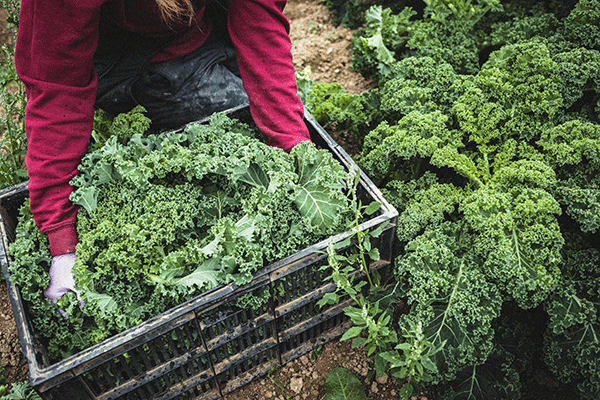Most farmers would prefer not to supply supermarkets, and see better opportunities for their own livelihoods, protecting nature, and connecting with their local communities elsewhere, a new survey has found.
A poll by sustainable food alliance Sustain of 500 farmers across England and Wales found 86 per cent were currently supplying a supermarket or a large food processor, but only five per cent would ‘prefer’ to continue doing so.
In a representative sample of small to medium farms, including arable, livestock, dairy, horticulture and mixed, the survey found the top three preferred places to supply food were a food hub (55 per cent), direct sales, such as through a veg box scheme (36 per cent), and the eating out sector (29 per cent).
The reasons cited for why farmers preferred these options were a better price, business stability, more control, direct links to customer, and supporting climate and nature ambitions.

The report also highlighted case studies of supply chains that are working well for farmers, such as the Helston Local Food Hub in Cornwall, which works with 30 Cornish food producers and where 80 per cent of each £1 spent by the consumer goes back to the farm.
Another example showed how Manchester-based Organic North, part of the Better Food Traders network, can keep its prices affordable while paying staff and producers fairly because they are a co-op without shareholder pressure.
“We would like to see all our produce being sold to local consumers who would be able to better appreciate its provenance as a result of seeing the system in operation on some of their favourite countryside walks,” one farmer respondent wrote.
Half of those asked said lack of access to affordable finance meant they couldn’t switch markets, alongside lack of time to research, plus no local customer base.
Sustain said the new data provides a “valuable picture of how and why farmers want to access better and fairer supply chains”. The survey also highlighted the need for local infrastructure like veg box schemes, auctions and markets, and social networks, to allow this transition to happen.
Currently, infrastructure like grading, storage, packaging, distribution and trading of food is highly centralised, large-scale, and suited to complex and long-distance supply chains.
“In a general sense, the results reveal that farmers want to shift away from the dominance and reliance of supplying supermarkets and large manufacturers, and instead, have a much greater diversity of market outlets like food hubs, box schemes, and independent retailers which they can access,” Sustain said.
“The data also provides insight into why farmers want to make those changes. This includes fairer pay and more direct relationships with customers, as well as being rewarded for environmentally friendly farming, and building more resilient businesses.”
This story was originally published in the autumn-winter print edition of Wicked Leeks. You can read the full magazine for free on Issuu.













0 Comments